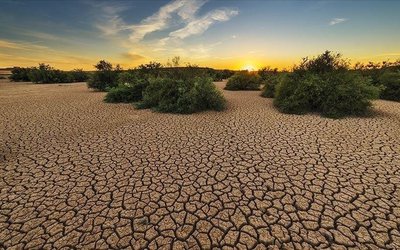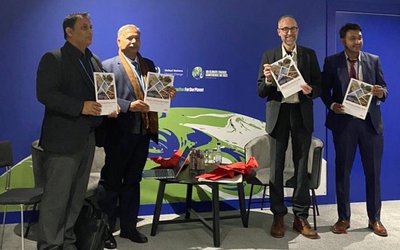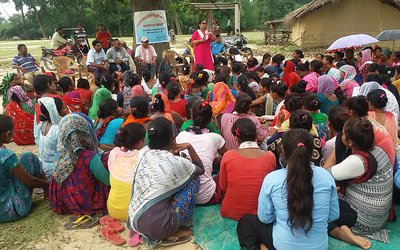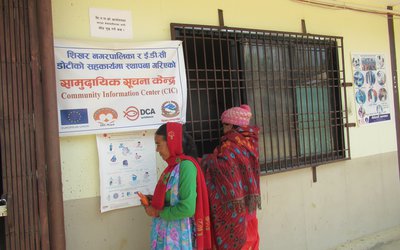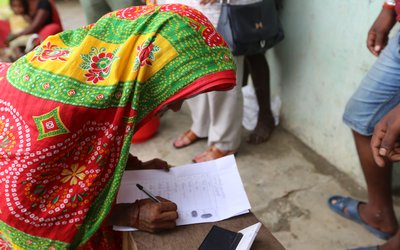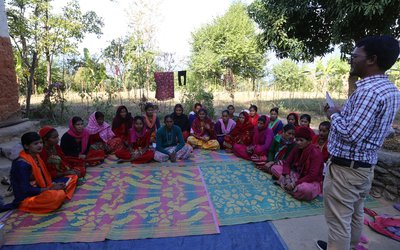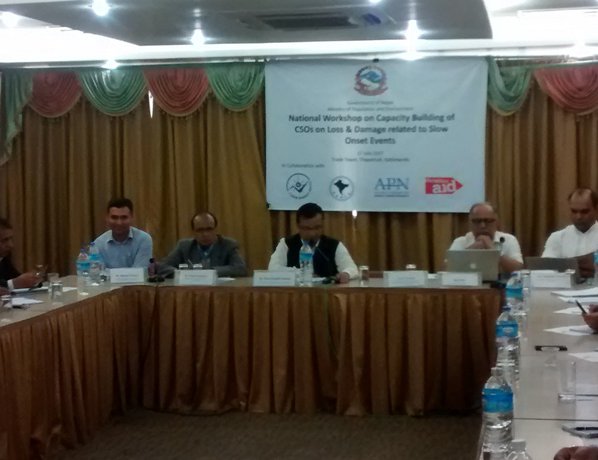
National Workshop on Capacity Building of CSOs on Loss & Damage concluded in Kathmandu. Organized by Ministry of Population and Environment (MoPE) in collaboration with Clean Energy Nepal (CEN) and Climate Action Network South Asia (CANSA), joint secretary of Ministry of Population and Environment Dr. Ram Prasad Lamsal inaugurated the workshop.
In the beginning, under secretary Raju Babu Pudasaini delivered the welcome note and highlighted objective of the workshop. Manjeet Dhakal, Clean Energy Nepal and advisor to the LDC chair at the UN Climate Change Negotiations presented his paper on loss and damage associated with climate change impacts and Nepal context.
Sanjay Vashist, Director Climate Action Network South Asia Commentator presented his views on Linkages between loss and damage, disaster risk reduction and climate induced migration,
Commenting on paper Ajay Dixit, Institute for Social and Environmental Transition Nepal (TBC), said that there need to have a scientific study on the issue before making any conclusion. “This issue involves many aspects.”
Dr. Dinesh Raj Bhuju, Resources Himalaya Foundation and professor at Tri-Bhuban University, Central Department of Environmental Science said that there need to spend more resources on research.
Dr. Krishna Chandra Poudel, Former Secretary, Government of Nepal Ministry of Population & Environment presented the paper saying this is now like the agenda of poor in climate change negotiations.
Gehendra Gurung, Climate Action Network South Asia / Practical Action opened the discussions. Geeta Pandey of CANSA delivered her closing remark.
This workshop aims to bring concerned CSOs representatives, representatives of academia & media to share the existing information about 'Loss and damage and the related slow onset events' in Nepal.
Loss and damage (L&D) is recognized as the negative impacts ensuing from extreme and slow-onset weather event that people are inadequately or entirely unable to cope with or adapt.
United Nation Framework Convention on Climate Change (UNFCCC) (2012b) describes Loss and Damage (L & D) as the actual and/or potential manifestation of impacts associated with climate change in developing countries such as Nepal, that negatively affect human and natural systems; where ‘Loss’ refers to the negative impacts in which preparation or restoration is impossible, while ‘damage’ relates to those aspects that are recoverable but at a cost.
Slow onset processes are defined as an event that evolves gradually from incremental changes occurring over many years or from an increased frequency or intensity of recurring events. Slow-onset hazard includes drought, temperature rise, glacial and snow melt, land and forest degradation, desertification, loss of biodiversity as well as sea level rise, ocean acidification, salinity intrusion.
The residual effects of climatic stressors and the associated cost of adaptation strategies are most significantly felt by most vulnerable countries - the least developed nations and island nations. ‘L&D’ is a re-emerging component to the international climate negotiation process after the establishment of a work program on the topic at the 16th UNFCCC Conference of the Parties (COP) in Cancun, Mexico in December 2010.
The concept gained further traction in 2012 when institutional agreements issued a mandate to address loss and damage. At the COP19 in 2013, the Warsaw International Mechanism was established to promote “implementation of approaches to address loss and damage associated with the adverse effects of climate change in a comprehensive, integrated and coherent manner” (UNFCCC, 2013). If we look at the Paris agreement it advances policy and the parameters on L&D within the UNFCCC structure and sets the stage for COP23 in November 2017 in Bonn under Fiji Presidency, where the outputs from the WIM will be further examined, including its structure, effectiveness, and mandate.
“Although Government of Nepal had taken several initiatives from the local level to national level to tackle the impacts of climate change, there are no such policies to respond to L& D issues; like lack of knowledge, skills and human-resource making more vulnerable towards climate change induced disaster. Loss and damage, which goes beyond adaptation, is, therefore, a critical issue for the Least Developed Countries like Nepal and at this point, no matter how much we prepare for future change, there will still be significant loss and damage from climate change and the Government of Nepal,” said Dhakal.
Along with Ministry of Population & Environment (MoPE) Clean Energy Nepal (CEN), Climate Action Network South Asia (CANSA), Asia Pacific Network on Global Change Research (APN) and Christian Aid helped to an organize workshop on Capacity Building of CSOs on Loss & Damage related to Slow Onset Events?
Participated by over 30 people, the second part of the program was moderated by Akhanda Sharma, undersecretary of MOPE. There was an intense discussion on loss and damage and related slow onset events in Nepalese context’s hey also discussed institutional arrangements and future perspectives on loss & damage inside the nation. Participants also discussed on the link of loss and damage with Sustainable Development Goals.
For Video:
- TANAHU HYDROPOWER PROEJCT: A Significant Achievement
- Apr 15, 2024
- AMBASSADOR HANAN GODAR: Sharing Pain With A Nepali Family
- Mar 30, 2024
- VISIT OF KfW AND EIB TO NEPAL : Mission Matters
- Mar 25, 2024
- NEPAL BRITAIN SOCIETY: Pratima Pande's Leadership
- Mar 24, 2024
- NEPAL ARMY DAY: Time To Recall Glory
- Mar 15, 2024

